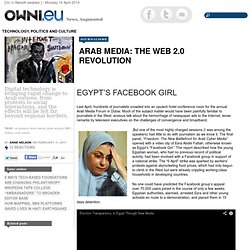

Welcome to Metamorphosis. Leiby Kletzky’s Killing Rattles Jewish Community’s Trust. Robert Stolarik for The New York Times Many in the insular community of Borough Park expressed disbelief on Thursday that a murder suspect was one of their own. “If you’re in the airport and need help, a Jew will help you,” said Ms. Schachter, who is a mother and a grandmother. “I pick up hitchhikers, boys waiting to go to yeshiva. When I travel and see another Jew, we’ll eyeball each other; there’s a connection. So like her neighbors in Borough Park, she has been bewildered by the fact that , 8, was kidnapped and killed, the police say, at the hands of another apparently religious Jew, though not a Hasidic one. “The fact that this came from within,” she said, “it’s beyond belief.” With its distinctive dress and customs, the insular ultra-Orthodox community of Borough Park has always been somewhat wary of outsiders who might introduce temptations and ideas that could erode their way of life.
It may never be known whether Leiby trusted Mr. “It was hanging out dirty laundry,” she said. Rapport de l'audit de la politique d'immigration, d'intégration et de codéveloppement. JTA and Jewish Newspapers. Two weeks ago the news service JTA (Jewish Telegraphic Agency) announced that its publisher, Mark Joffe, was stepping down suddenly after 17 years in that position, and that his successor had already been named.

The board chair acknowledged only Joffe’s “vision and his many years of loyal service,” not any of his accomplishments, and there was no transition period. To an outside observer this gives the unmistakable appearance of an abrupt break rather than a planned, orderly progression. A report this week in The Jerusalem Post does little to alter that impression. Early comments by incoming publisher Ami Eden, JTA’s editor-in-chief since 2007, suggest that he is making a fresh start, with definite new ideas about content and collaboration.
He observed to the Post, for example, that American Jewish media need to be “different from Haaretz, JPost, Ynet” by concentrating more on stories from the United States. That’s partly true. The Internet's Effect on Jewish Newspapers - Rabbi Jason Miller. The Jewish Telegraphic Agency (JTA) likes to think of itself as the Jewish AP.

The JTA is a non-profit news service that disseminates the happenings in the Jewish world as soon as they happen. Ideally, they try to scoop all the other news agencies and print media. The long-time publisher of the JTA, Mark Joffe, stepped down suddenly on July 25 and Ami Eden, who was serving as editor, took the reins. The Jerusalem Post reports that there was more to the JTA's press release than was reported. "Over the past two decades, US Jewish media and print journalism in general have been in steady decline due to dwindling readership and loss of ad revenue to the Web. The Jerusalem Post interviewed new JTA publisher Ami Eden, who said that ideas for collaboration among the Jewish print media were percolating and would materialize between 12 and 18 months. As both an avid reader of Jewish newspapers and an uber-connected Web user, I’ve been thinking about many of these issues myself.
Arab media: the web 2.0 revolution. Last April, hundreds of journalists crowded into an opulent hotel conference room for the annual Arab Media Forum in Dubai.

Much of the subject matter would have been painfully familiar to journalists in the West: anxious talk about the hemorrhage of newspaper ads to the Internet, tense remarks by television executives on the challenges of convergence and broadband. But one of the most highly charged sessions (I was among the speakers) had little to do with journalism as we know it. The final panel, “Freedom: The New Battlefront for Arab Cyber Media” opened with a video clip of Esra Abdel Fattah, otherwise known as Egypt’s “Facebook Girl.” The report described how the young Egyptian woman, who had no previous record of political activity, had been involved with a Facebook group in support of a national strike. No one could have predicted the Facebook group’s appeal: over 70,000 users joined in the course of only a few weeks. There was much for the bloggers to report.